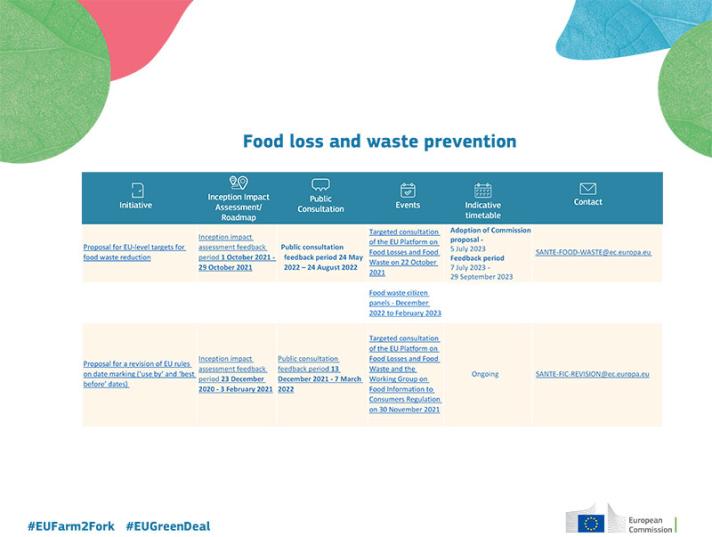In the EU, nearly 59 million tonnes of food waste (131 kg/inhabitant) are generated annually with an associated market value estimated at 132 billion euros (Eurostat, 2022). Eurostat roughly estimates that around 10% of food made available to EU consumers (at retail, food services and households) may be wasted. At the same time, some 32.6 million people cannot afford a quality meal every second day (Eurostat, 2021).
Food waste also has a huge environmental impact, accounting for about 16% of the total Greenhouse Gas emissions from the EU food system.
Reducing food waste has enormous potential for reducing the resources we use to produce the food we eat. Fighting food waste is a triple win: it saves food for human consumption; brings savings for companies and consumers; and lowers the environmental and climate impact of food production and consumption.
The EU is committed to achieving the global Sustainable Development Goal (SDG) Target 12.3 to halve per capita global food waste at the retail and consumer level by 2030, and reduce food losses along the food production and supply chains.
Reducing food loss and waste is an integral part of the Farm to Fork Strategy action plan. In order to step up action to prevent food loss and waste and accelerate the EU’s contribution to SDG Target 12.3, the Commission adopted a legislative proposal setting legally binding food waste reduction targets to be achieved by Member States by 2030. The results of the first EU-wide monitoring of food waste levels carried out in 2020 will serve as a baseline to assess progress toward the targets.
More specifically, Member States are required to take the necessary measures to reduce food waste by the end of 2030:
- by 10%, in processing and manufacturing and
- by 30% (per capita), jointly at retail and consumption (restaurants, food services and households).
The Commission’s legislative proposal will now be subject to negotiation with the European Parliament and the Council of the European Union in view of its adoption by co-legislators according to the ordinary legislative procedure (co-decision).
The Commission will also further integrate food loss and waste prevention in other EU policies, investigate and explore ways of preventing food losses at the production stage, and continue to mobilise all players, notably by encouraging implementation of the recommendations for action of the EU Platform on Food Losses and Food Waste.
For more information on EU actions against food loss and waste, please visit the Commission’s Food waste website.

